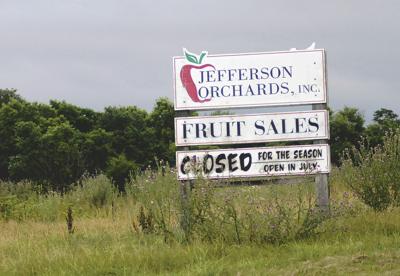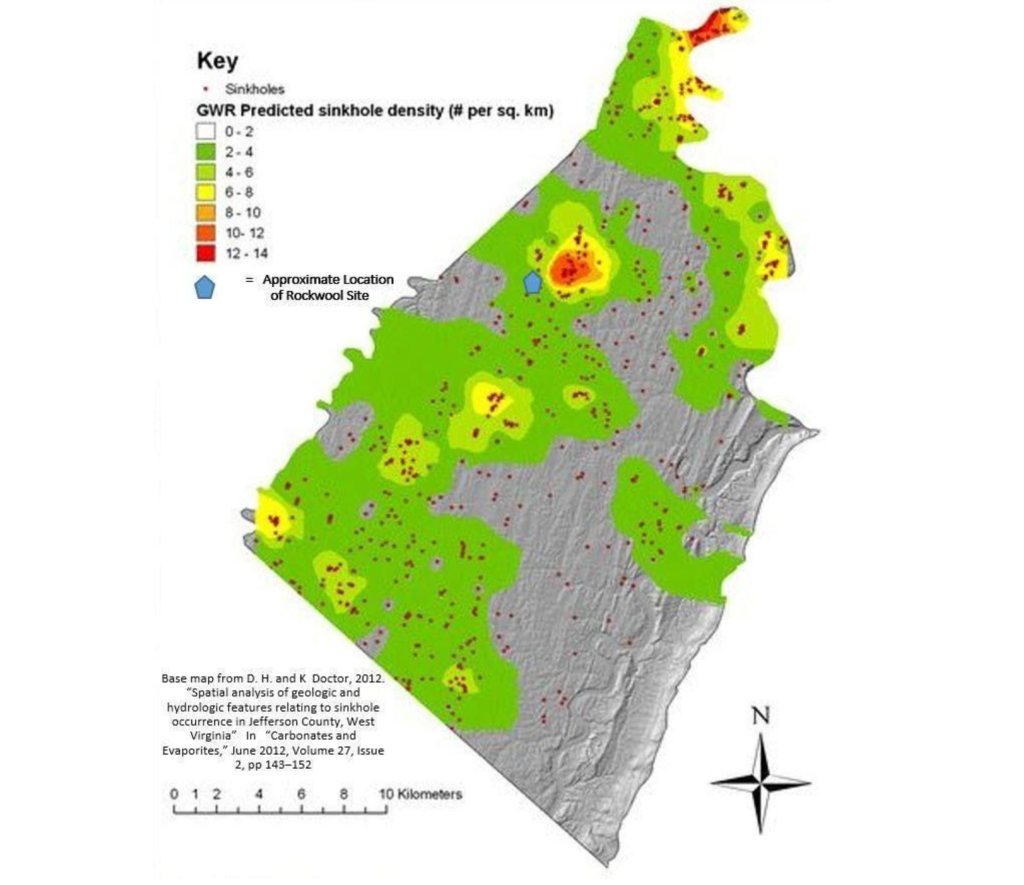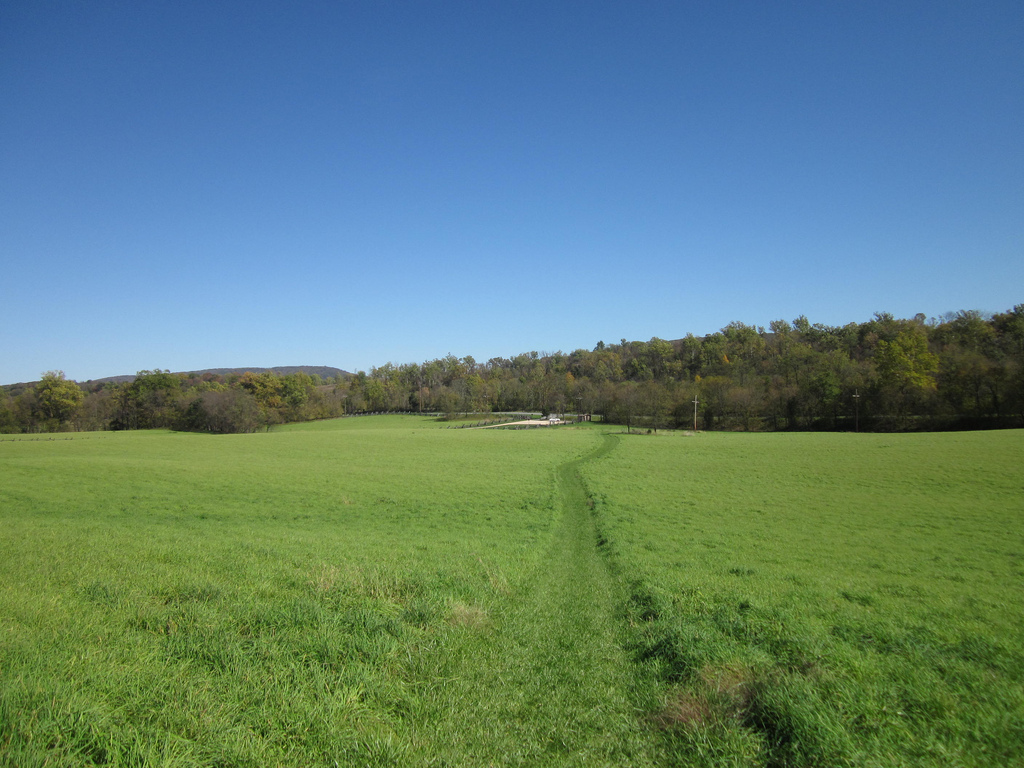Rezoning for Heavy Industry
Righting the Wrong
History: What Happened and Why?

In 2017, the City of Ranson passed an ordinance rezoning the land previously known as Jefferson Orchards from Smart Code – New Community to Smart Code – Special District Industrial. One month before this, Ranson amended the ordinance regulating the designation Special District Industrial so it could accommodate large heavy industrial installations such as Rockwool. Rezoning this land required a Class II legal notice be published in the paper twice. However, Ranson only published this notice once in the Spirit of Jefferson on July 6, 2017. In 2018, Ranson was sued and in a recent decision was found to be in violation of the state law stipulating notice for such changes. For more information about the history of this, go here.
Now Ranson is trying to repeat and correct the process. The notices have been made and now it is time for the public to tell Ranson why it is not appropriate for this land to be zoned for heavy industry. The karst hydrogeology of the land itself makes heavy industry in this location a major risk to public health and the environment. The air emissions and traffic associated with heavy industry are inappropriate for this location. Heavy industry endangers the industries our local economy relies on, and will either bring more heavy industry or create a development desert in the heart of our county. This heavy industry simply does not align with the comprehensive plan of Ranson, and represents an egregious example of environmental discrimination. Read more about the background on zoning in Ranson.
How You Can Help
Educate yourself and others
Read the detailed information on our website and share with others. Knowledge is power.
- The Background on Zoning in Ranson
- Karst Hydrogeology Concerns
- Heavy Industry Near Schools
- Negative Effects On Local Economy
- Heavy Industry Incompatible With Ranson’s Comprehensive Plan
- Environmental Discrimination
Donate to support our efforts
If you are able to, please support our ongoing legal efforts with a fully tax deductible donation.
Karst Hydrogeology

The hydrogeology of this county has been extensively studied by the United States Geological Survey (USGS) and academic groups, demonstrating that this area of the county has well developed or mature karst hydrogeology. As such, the groundwater aquifer is highly sensitive to contamination from surface activities. The groundwater at this particular location has been shown to have a direct effect on the surface waters in the county, several of which service municipal water sources, and all of which empty into the Potomac River and eventually the Chesapeake Bay. In Jefferson County, a great majority of residents and businesses rely on this sensitive groundwater for all water uses. Contamination of the groundwater would be devastating to our county’s population and our economy. The guiding documents (CSN Technical Bulletin No. 1 and Appendix C Stormwater Management Design in Karst Areas) of the DEP for stormwater design in karst state, “the best local approach is to craft stronger comprehensive land use plans that direct new growth away from karst areas to more appropriate locations.” Zoning this location for heavy industry poses too great a risk to the water resources of our county. Read more about karst hydrogeology.
Location Near Schools
“There is no safe level of exposure to a carcinogen.”
CDC – Current Intelligence Bulletin 68:
NIOSH Chemical Carcinogen Policy
Heavy industry commonly has high levels of air emissions and markedly increases large truck traffic. Rockwool, for example, will emit 392 tons per year of total hazardous air pollutants and increase local traffic by over 100 large trucks per day. This is not appropriate to be close to schools. Children are exquisitely sensitive to pollution. Air pollution is known to cause multiple non-communicable diseases in children, exacerbates existing disease and increases the rate of disease in adulthood. Air pollution causes cancers and respiratory, autoimmune, hematologic, and neurodevelopmental diseases in children. In addition to the physiologic effects of air pollution, there are a myriad of psychological effects. These challenges lead to negative effects on almost every lifetime metric studied including lifetime achievement, earnings, and suicide rates. According to the CDC, there is no safe level of exposure to carcinogens1, and when simply having a large intersection near a school can cause measurable effects, how could we allow heavy industry less than 2,000 feet from an elementary school?
Devastating Effect on our Local Economy and Future Development
With the large numbers of heavy trucks, air emissions and other unsightly operations and byproducts, heavy industry is not a good neighbor. Clean industry rarely co-locates with heavy industry. Instead, typically multiple heavy industry entities congregate in less desirable locations. Therefore, once one heavy industrial installation such as Rockwool locates in this area of the county, we are unlikely to be able to attract more desirable clean industry to this area. Additional heavy industry is simply not acceptable for this area and the people of Jefferson County will not allow it, leaving a development desert. The smokestacks in the view shed of the local Appalachian trail, and the decline in air and water quality will challenge our tourism industry. The air emissions and threat to our water will damage and possibly devastate our agriculture and equine industries. These are the largest industries in our county. Our local economy cannot withstand these risks.
Read More about Economic Impacts
Heavy Industry Simply Does Not Align with Ranson’s Comprehensive Plan
By law, any change in zoning needs to align with the comprehensive plan. In Ranson’s current comprehensive plan (2012), the phrase “heavy industry” only appears once. It is in the history section where they characterize it as part of a by gone era that has been replaced by an emphasis on agriculture for local food production, open spaces, and quality-of-life. They use the word “industry” 10 more times to refer generally to businesses like shoe stores and florists, but never refer again to heavy industry or anything that could be construed as such. Under land use it states:
“Encourage manufacturing and assembly-line facilities to locate in Ranson. The City will designate ample land that is well-suited for industrial facilities and will ensure that industrial facilities do not adversely affect the health, safety, or welfare of the community.”
This rezoning fails to ensure that industrial facilities do not adversely affect the health, safety, or welfare of the community. In fact, as listed above, it directly jeopardizes these and should not be allowed.
Environmental Discrimination
Environmental discrimination, sometimes referred to as environmental racism, refers to the institutional rules, regulations, policies or government and corporate decisions that deliberately target certain communities for locally undesirable land uses and lax environmental laws, resulting in communities being disproportionately exposed to toxic and hazardous waste based upon socioeconomic characteristics. This is exactly what is happening here. This is one of the most economically disadvantaged areas in the county. For example, the two closest schools to the site are both Title 1 schools (school districts and schools with high numbers or high percentages of children from low-income families). This change in zoning is an egregious example of the institutional regulations used to perpetuate environmental discrimination. This cannot be allowed to stand in Jefferson County.


